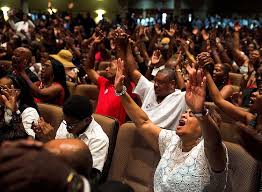I am old enough to remember when Essence covered the diverse nature and multiple issues of Black women living in a white man’s world. Essence went further in their coverage of Black women than merely printing beautiful pictures of them; there was no beauty of the week centerfold within the pages of Essence. I recall the presentation and discussion of substantive issues impacting Black America and Black women. When one desired exposure to the multi-faceted nature of Black women, Essence was mandatory reading.
The recent performances of Megan Thee Stallion and Janelle Monáe at Essence Festival reflect the diversity found among Black women regarding how they choose to present themselves to a world whose amused contempt and pity rise with the risqué nature of the presentation. At the same time, the alluded performances have resurfaced an essential issue among Black America regarding what a Black woman should be and should do. It can be reasonably stated that Black women have never been monolithic in any facet of life. This rich diversity of thought, dress, language, and public behavior has unfortunately forced a conversation that sadly ends in the conclusion that there is now a vocal minority population that can no longer be considered a credit to the Race regardless of the evaluation criterion.

In a long-forgotten comedy special, Chris Rock made the shocking statement that a Civil War is occurring in Black America between Black people and Niggas, and Niggas have got to go. Although I would like to cite the recent performances of Megan Thee Stallion and Janelle Monáe as the catalyst to a significant split regarding public decorum, morality, and sensibility among Black women, the truth of the matter is that those issues have been gradually worsening at an increasingly rapid pace for decades. Somewhere along the way, many, certainly not all, Black women have abandoned Black America’s cultural norms and chosen to violate our ancestors’ age-old advice to not go out and “show your color.”
One needs to look no further than the response that artist India Arie’s reaction to the performances mentioned above that, including a twenty-woman twerk fest from festival attendees at Meg’s invitation or Janelle Monáe’s idiotic decision to bare a pasty-covered nipple to the disappointment of Black men, women, and children attending the Essence Festival. Arie issued the following constructive criticism in the wake of the performances.
Is everything for KIDS? No, is everything for EVERYBODY? So when we as a culture make something like this mainstream, it shows a lack of discretion and discernment.

The response that the above comment received from a vocal minority was telling due to its wicked, horrific, and unceasing nature. Supporters of the public twerk fest and unnecessary display of nudity dismissed India Arie’s criticism as irrelevant and out of touch with the times. Undoubtedly, a significant segment of our population celebrates the devolving culture threatening to bar Black success permanently.
This championing of socially unacceptable brutish behavior among Black women and girls is proving to be a significant threat to Black America’s existence. One needs to look no further than the manosphere to encounter Black men expressing frustrations regarding the absence of marriageable Black women. Many alluded men have reacted to the declining numbers of what they deem suitable Black women by searching foreign lands for a lifetime mate.
The most frightening aspect of this matter is that the decline of marriageable Black men and women is an unprecedented threat to Black existence. However, there appears to be no way of stopping this cultural devolution that ultimately results in Black women celebrating their status as bitches, hoes, and baby mommas and Black men as uneducated, inarticulate thugs, absent a modicum of discipline. Unbeknownst to those who are reveling in copious amounts of ignorance, their Black contemporaries disapprove of their flawed value system and display a penchant for leaving them behind as they build lives worth living.

In time, the developing gap between an educated class of responsible, forward-looking Blacks and a have-not class will be too vast for the latter group who have chosen to twerk their way through life when they should have been working to cross. Fortunately for future generations of Black America, the formula for creating a life worth living remains available if they desire it. If not, they should seek out their tribe and be prepared to “throw that ass in a circle.”
We need Black men and women to do better!!!!!!
Immediately!!!!!!!
James Thomas Jones III, Ph.D.
©Manhood, Race, and Culture, 2023
Please remember to subscribe to the Manhood, Race, and Culture YouTube Channel.







